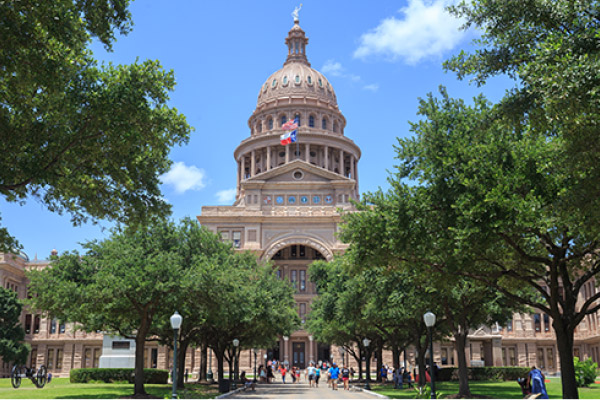by Christian Hudspeth, CFP®
Thinking of selling your home?
Spring and summer are historically the busiest (and most profitable) times of the year for people to sell homes thanks to nicer weather and more inventory for buyers to choose from.
That said, we find many clients become apprehensive about selling their primary home because they are not sure how many thousands of dollars they might have to pay in taxes.
In this post, we will talk about how home sales are taxed, how to minimize your capital gains taxes, and how to maximize your profit so you can stretch your dollars toward your next home or even greater financial goals.
Home Sale: Capital Gains 101
In the most basic terms, you as a seller will be taxed on the profit (called capital gain) you make when you sell your home. Here is a simplified formula:
Capital Gain = Price You Sell Your Home For – Your Cost*
*This is referred to as your cost basis
As an example, if you purchased a home for $300,000 (cost basis) many years ago and sold it at a price of $1,000,000 today, your capital gain could be $700,000.
But that’s not the end of the story. Because the Internal Revenue Service (IRS) asks you to report the costs you paid to improve the home, you can reduce your taxable profit more than you might have realized by adding improvement items to your cost basis.
Reducing Taxes by Tallying Up Home Improvements and Costs
When a client wants to sell their home, our planning team likes to ask the following questions to find ways to reduce taxes:
- How much did you originally pay for the home, and when did you buy it?
- How much have you paid for renovations and improvements to the property?
- What commissions and fees will you pay your real estate agent and title company?
These questions will help you find your property’s adjusted cost basis. A new HVAC unit, roof, fence, bathroom or kitchen remodel for example are considered improvements to a property, which increase a home’s cost basis and potentially decrease the capital gains and taxation.
For example, let’s say you bought a home several years ago for $300,000. You paid $200,000 for home improvements over the years, and plan to sell it for $1,000,000. You may pay $60,000 in sales commissions (6% of sale price) to the real estate agent when you sell.
All told, your capital gain could be:
$1,000,000 sale price
– $300,000 original purchase price
– $200,000 home improvements
– $60,000 sales commissions
———————————————–
$440,000 capital gain (profit)
But before we call it a day, there is one more big piece of the equation that could mean not owing taxes at all on your home sale.
Selling Your Primary Home – The Home Sale Exclusion
If you have owned and lived in your home for two out of the last five years (even non-consecutively), you may be able to claim The Section 121 Home Exclusion: one of the largest tax breaks offered by the IRS.
The Section 121 Home Exclusion lets married couples filing a joint tax return exclude up to $500,000 in capital gains (single filers can use it to exclude up to $250,000 in capital gains) from their taxable income if they meet IRS requirements.
That means in the example above, a married couple filing jointly may not have to pay capital gains taxes on their $440,000 in capital gains if it is their principal residence because the gain is below the $500,000 Section 121 Home Exclusion amount.
Bonus tip: Landlords, you may be able to reduce your capital gain tax using the Section 121 Home Exclusion as well by making one simple move – talk to your financial advisor for details.
Planning Techniques to Minimize Capital Gains Taxes
Whether you’re thinking of selling your home or you’ve just sold it, you may be facing a “now what?” moment as far as how you could use the proceeds.
While some sellers end up using their home sale proceeds toward a larger home, more and more people heading toward retirement choose to optimize those precious resources to realize other financial goals like a more secure retirement, a second home, or an investment property that can generate passive income.
That’s when it’s a good idea to get with a trusted financial advisor and financial planning team who can help you:
- Identify and weigh your goals, such as your immediate cash needs, your wishes to leave an inheritance, or a combination of both
- See if you qualify for the Section 121 Exclusion on a primary home sale, or even a partial one if you did not live there for a full two years
- Get to retirement faster: by helping you decide whether to downsize to a smaller home and invest the surplus or keep your current home with lower property tax
- Forsee potential capital gains tax on an inherited property and help you decide if it is more profitable to rent out the property or sell it and use the proceeds toward other financial goals.
- Plan to reduce lifetime taxes by picking the most strategic, low-tax year to sell your primary home, second home or even investment properties.
More resources on minimizing capital gains while selling your home:
Kiplinger’s: Capital Gains Taxes on Real Estate and Home Sales
Smart Asset: How to Avoid Capital Gains When Selling a House
IRS: Sale of Your Home and Qualifying for the Home Sale Exclusion
*The information presented here is not specific to any individual’s personal circumstances. FMP Wealth Advisers is not providing investment, tax, legal, or retirement advice or recommendations in this article.
**To the extent that this material concerns tax matters, it is not intended or written to be used, and cannot be used, by a taxpayer for the purpose of avoiding penalties that may be imposed by law. Each taxpayer should seek independent advice from a tax professional based on his or her individual circumstances.
***These materials are provided for general information and educational purposes based upon publicly available information from sources believed to be reliable — we cannot assure the accuracy or completeness of these materials. The information in these materials may change at any time and without notice.



